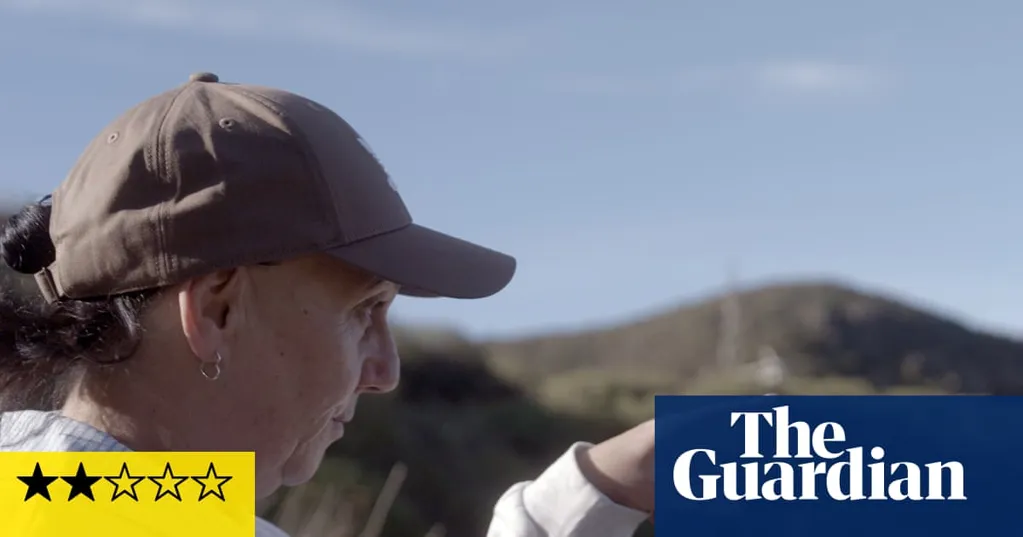The teenager's family are grieving while having to contend with wild conspiracy theories and trolling. Surely this documentary should have done more to tackle such horrendous online abuse.
There is always a line in any documentary about a death, and especially that of a child, that suddenly distils the bereaved's pain so effectively you can only bow before it and wonder at the strength of the human spirit surviving amid such suffering. In The Disappearance of Jay Slater, it comes from Jay's father, Warren, as he remembers the brutal hope the family had that their son had been taken by kidnappers, and the online rumours swirling about his torture for a supposed drug debt. "At least if we'd got him back," says Warren, "I could have mended him."
Nineteen-year-old Jay Slater went missing on 17 June last year. He was partying until the early hours with his pals at a music festival in Tenerife - the first time he had gone on holiday without his parents - then left a nightclub with two people he had met there and went back to their Airbnb 30 miles from his own digs. After a few hours' sleep, he started to make his way back. Then he disappeared. His friends couldn't get hold of him. His family flew from their home in Oswaldtwistle, Lancashire to Tenerife and watched and waited as the search of the mountainous terrain he was thought to have tried to pass through was started by the Guardia Civil. This was expanded via volunteers and eventually concluded on 15 July when human remains were discovered at the bottom of a ravine, close to the last known location of Jay's phone. DNA fingerprinting confirmed that this was Jay. A preliminary autopsy by the Spanish authorities said he had died as a result of head injuries sustained in a fall from a great height. Back in England, once the body had been repatriated, another autopsy agreed, and noted that toxicology results suggested he had ingested drugs and alcohol not very long before.
It's a terrible story. But it should have been one about a tragic accident and parents left to come to terms with life without their son. Yet it was complicated by the media attention that the disappearance and long search garnered, which in turn opened the way for conspiracy theorists to seize on the case, and trolls to spread rumours and fuel the misery. Kernels of truth and grains of possibility were spun - by, well, anyone who wanted to, really - into full-blown narratives trumpeted as truth. Jay was in one incarnation a watch thief, in another a dangerous drug dealer offed by a gang when he got into debt, in another the aforementioned kidnap and torture victim, or some combination of the above, and more. The GoFundMe page set up by Jay's friend Lucy inspired further theories and vitriol - it was to pay off his drug debt, then he would reappear. No, the whole thing was a set-up from the beginning and the family was in on it. No, it was this, it was that, it was something else entirely ... all of it emotionally devastating to his family.
However, you have to pull much of this together yourself from the documentary, which is messy, unfocused and fails to do justice to either strand of the narrative. It seems unable to decide what it wants to be. At times, it edges towards becoming an examination of the power of the internet and the harm people liberated by anonymity do to others - either with the gleeful intent of the true troll or the unthinking carelessness of the armchair sleuths who view unfolding news stories as if they were movies and have apparently no regard for the fact that these are real things happening to real people. But there the film is hamstrung by (bizarre though it seems) the fact that not only are experiences like the poor Slaters' far from rare; but that theirs is not even at the worst end of the spectrum of abuse to which vulnerable people suddenly in the public eye can find themselves subjected.
What is left, without such an interrogation of the wider issues raised by the Slaters' experiences, is essentially an obituary. The beloved boy - lost to an accident as daft, drunk, high or hungover lads too often are - is remembered and then the credits roll. This, you hope, brings some catharsis and closure for the family, of course. But what the point of it otherwise was or should have been remains an open question.
